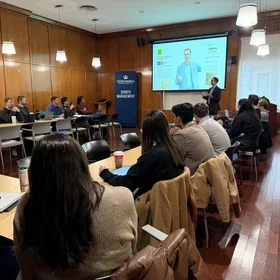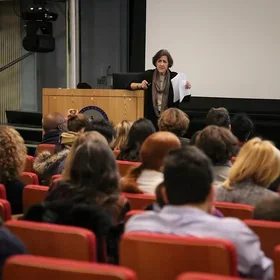In the past two years of pandemic living, many students shifted towards online distance learning. However, as Shami-Iyabo Mitchell ('20SPS, Bioethics) highlights in her article in Voices in Bioethics, the increased need for technology to work, learn, or interact socially has compounded digital divides. Students who do not have access to the necessary technology are not able to participate, a phenomenon Mitchell calls “the homework gap – which refers to the lack of minimum connectivity children need in order to complete schoolwork at home.”
The article further explores race and income within low-income families. “Roughly one-third (35 percent) of households with children ages 6 to 17 and an annual income below $30,000 a year do not have a high-speed internet connection at home, compared with just 6 percent of households earning $75,000 or more a year.” If this pattern continues, an entire generation of low-income children will miss formal education, widening the education gap between the poor and the wealthy. This generation of children will then most likely socially reproduce another generation of low-income children, facilitating an intergenerational education gap, Mitchell writes.
Because the digital divide is characterized by cost and internet access, Mitchell argues that potential solutions necessitate both the private sector and the government. Although AT&T and Comcast have provided low-cost solutions for providing internet access and refurbished computers, for example, monthly rates of $10 per month are still considered expensive among many low-income families. Furthermore, applications for sign-up also require internet access and printers, to which many families may not have access.
“It is the responsibility of government agencies to promote the general welfare of citizens per the preamble to the US Constitution” argues Mitchell. However, opposing political opinions have delayed stimulus packages that could aid in closing the homework gap.
“Providing equitable internet access to all could disrupt the cycle of poverty in at-risk families,” writes Mitchell.
To read the full article, visit the link.



